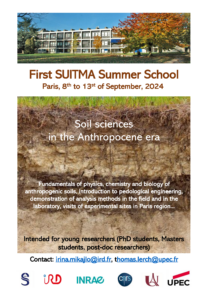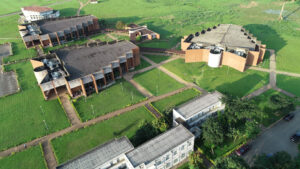
Thesis defense of Yao ZHEN – «Identification of interacting mitochondrial enzymes involved in pyrroline-5-carboxylate metabolism in Arabidopsis thaliana »
Abstract :
The proteinogenic amino acid proline plays a crucial role for cellular metabolism in living organisms.
In mitochondria, proline is oxidized to glutamate by the sequential action of proline dehydrogenase (ProDH) and pyrroline-5-carboxylate (P5C) dehydrogenase (P5CDH). In addition, ornithine δ-aminotransferase (OAT) also participates in P5C formation through the conversion of ornithine and α-ketoglutarate into glutamate and P5C. Using mutants and biochemical approaches, ProDH1, P5CDH, and OAT were shown to be involved during dark-induced leaf senescence (DIS) in Arabidopsis thaliana.
Striking accumulation of P5C and proline was observed in p5cdh mutant and to a lesser extent in prodh1prodh2 mutant, suggesting a putative proline-P5C cycle. Metabolomic analysis indicated that prodh1prodh2 and p5cdh have a similar metabolomic profile, but significantly different from wild-type and oat mutant, demonstrating the role of proline oxidation during DIS. ProDH1 was shown to be preferentially associated to the mitochondrial membrane fraction, while P5CDH and OAT are more evenly distributed between matrix and membrane fractions. Homo- and hetero-oligomerizations of ProDH1, P5CDH, and OAT were revealed using Bimolecular Fluorescence Complementation (BiFC) assay of infiltrated tobacco leaves. Interactions between P5C metabolism enzymes were further highlighted in DIS leaves using proteomics approaches coupled with mass spectrometry.
Our work demonstrates that these three enzymes form P5C metabolic complex(es) involved in the oxidation of proline to fuel mitochondrial electron transfer chain to support the energy needs of senescent cells.
- Orateur: Yao ZHENG
- Laboratoire: iEES Paris
- Mail de l'orateur: yao.zheng@etu.upmc.fr
-
résumé:
The proteinogenic amino acid proline plays a crucial role for cellular metabolism in living organisms.
In mitochondria, proline is oxidized to glutamate by the sequential action of proline dehydrogenase (ProDH) and pyrroline-5-carboxylate (P5C) dehydrogenase (P5CDH). In addition, ornithine δ-aminotransferase (OAT) also participates in P5C formation through the conversion of ornithine and α-ketoglutarate into glutamate and P5C. Using mutants and biochemical approaches, ProDH1, P5CDH, and OAT were shown to be involved during dark-induced leaf senescence (DIS) in Arabidopsis thaliana.
Striking accumulation of P5C and proline was observed in p5cdh mutant and to a lesser extent in prodh1prodh2 mutant, suggesting a putative proline-P5C cycle. Metabolomic analysis indicated that prodh1prodh2 and p5cdh have a similar metabolomic profile, but significantly different from wild-type and oat mutant, demonstrating the role of proline oxidation during DIS. ProDH1 was shown to be preferentially associated to the mitochondrial membrane fraction, while P5CDH and OAT are more evenly distributed between matrix and membrane fractions. Homo- and hetero-oligomerizations of ProDH1, P5CDH, and OAT were revealed using Bimolecular Fluorescence Complementation (BiFC) assay of infiltrated tobacco leaves. Interactions between P5C metabolism enzymes were further highlighted in DIS leaves using proteomics approaches coupled with mass spectrometry.
Our work demonstrates that these three enzymes form P5C metabolic complex(es) involved in the oxidation of proline to fuel mitochondrial electron transfer chain to support the energy needs of senescent cells.





